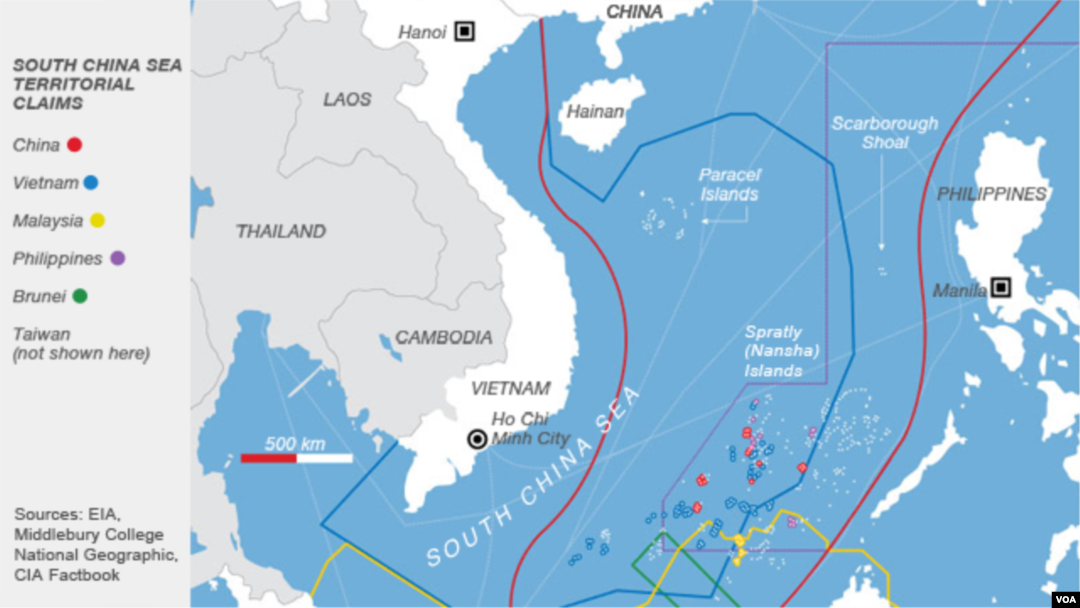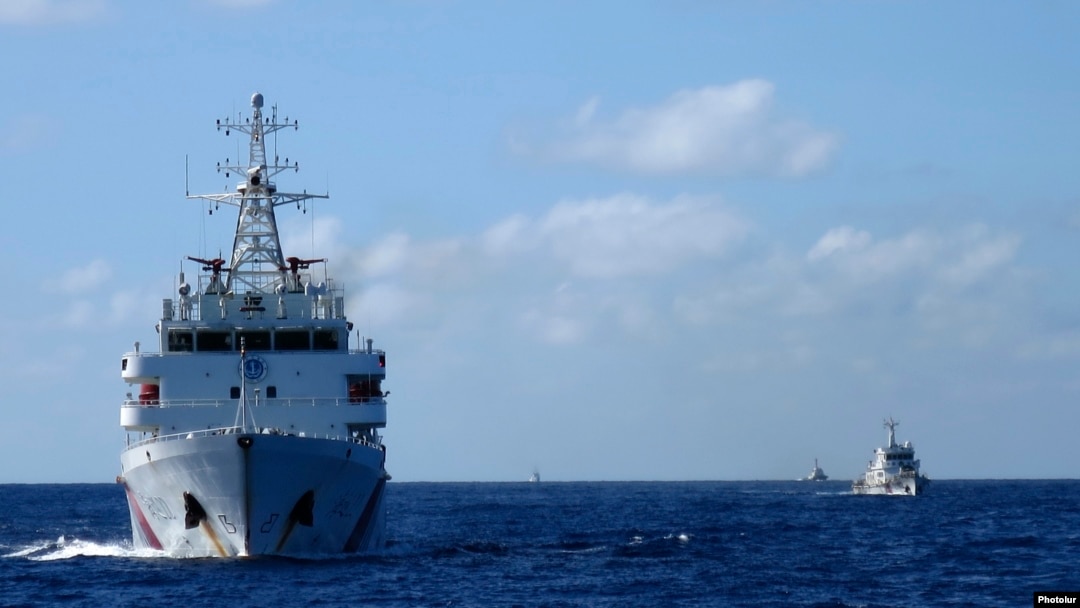After facing weeks of criticism about its reclamation work on disputed islands in the South China Sea, China on Wednesday turned the tables on Vietnam, the Philippines and others by accusing them of carrying out their own illegal building work.
China claims 90 percent of the South China Sea, which is believed to be rich in oil and gas, with overlapping claims from Brunei, Malaysia, the Philippines, Vietnam and Taiwan.
Recent satellite images show China has made rapid progress in building an airstrip suitable for military use in the Spratly Islands and may be planning another.
Those moves, along with other reclamations, have caused alarm around the region and in Washington, too, with the issue dominating a summit of Southeast Asian leaders this week, to China's displeasure.

Click to enlarge
At a daily news briefing, Chinese Foreign Ministry spokesman Hong Lei listed reclamation work being done by other claimant nations in the Spratlys, which China calls the Nansha Islands.
"For a long time, the Philippines, Vietnam and other countries have been carrying out reclamations on the Chinese islands they are illegally occupying in the Nansha Islands, building airports and other fixed infrastructure, even deploying missiles and other military equipment," he said.
'So-called tourism facilities'
On Thitu Island, the Philippines is building an airport and expanding a wharf, and on Nanshan Island, Flat Island and others they are building "so-called tourism facilities," Hong added.
Vietnam is also building docks, runways, missile positions, office buildings, barracks, hotels, lighthouses and helicopter pads on more than 20 islands and shoals, including Prince Consort Bank and Orleana Shoal, he said.
"China is resolutely opposed to these illegal activities and demands the relevant countries immediately stop their infringements on China's sovereignty and rights," Hong added. "China's construction in the Nansha Islands is totally within the scope of our sovereignty; it is reasonable, fair and lawful."
U.S. President Barack Obama on Wednesday accused China of "flexing its muscles" to advance its maritime claims against Asian neighbors, including a dispute with Japan over uninhabited islets in the East China Sea.
Hong urged the United States to abide by its promises not to take sides in territorial disputes or "send the wrong signals."
Disputes over how to tackle an increasingly assertive stance by China - an ally of several ASEAN states - in the strategic waters of the South China Sea make the issue Southeast Asia's biggest potential military flashpoint.


